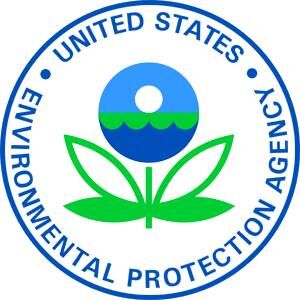Bending to a judge’s order, the Environmental Protection Agency banned all use of the insecticide chlorpyrifos on food crops. In a brief statement accompanying a prepublication version of the final rule, EPA simply said, “In August 2021, EPA released a final rule revoking all ‘tolerances’ for chlorpyrifos, which establish an amount of a pesticide that is allowed on food.”
The ban followed a judge’s April 26 order to EPA to ban it within 90 days, as reported in High Plains Journal on May 15.
After the tolerances are revoked under the final rule, EPA explained, food containing any amount of it will be considered adulterated. Distribution of adulterated food in interstate commerce is unlawful under the Federal Food, Drug and Cosmetic Act.
Non-agricultural uses are unaffected by the final tolerance rule.
Chlorpyrifos is a broad-spectrum insecticide that acts on the nervous system. It works by inhibiting the breakdown of acetylcholine, a neurotransmitter. It can also interact with many mammalian enzymes in ways not completely understood. Chlorpyrifos has been linked to brain damage in young children by several studies. For that reason, California banned its use in 1996 under the Food Quality Protection Act.
EPA first registered chlorpyrifos as a pesticide in 1965 for both agricultural and non-agricultural areas. Since then, EPA has reviewed chlorpyrifos several times for tolerance reassessment, reregistration, and registration review. In March 2017, during the Trump administration, EPA denied a petition seeking to revoke all pesticide tolerances (maximum residue levels in food) for chlorpyrifos and cancel all chlorpyrifos registrations.
Corteva announced on Feb. 6, 2020, that it was ending production of chlorpyrifos, after years of declining sales. Brands include Lorsban and Cobalt, commonly used in Iowa for control of field crop pests, especially where pyrethroid insecticides are less effective. Other branded chlorpyrifos products that are registered trademarks of Dow Chemical but are distributed by other companies include Eraser, Govern, Hatchet and Whirlwind.
A spokesperson for Corteva Agriscience said, “While Corteva Agriscience no longer produces chlorpyrifos, the company stands by the safety of the product and its value for the grower community. This action [by the EPA] effectively removes an important tool for farmers and, while Corteva continues to review the order, it appears that the rationale used by the agency is inconsistent with the complete and robust database of more than 4,000 studies and reports that have examined the product in terms of health, safety and the environment.” Some of Corteva’s patented GM seeds are engineered to resist chlorpyrifos, among other pesticides.
U.S. Sen. John Boozman, R-AR, ranking member of the Senate Committee on Agriculture, Nutrition, and Forestry, and U.S. Rep. Glenn Thompson, R-PA, ranking member of the House Committee on Agriculture, said in a joint statement:
“EPA’s Office of Pesticide Programs has been the world’s gold standard of scientific integrity and regulatory review standards when it comes to registering crop protection tools. Unfortunately, EPA’s decision to remove certain tolerances for chlorpyrifos not only circumvented its own regulatory registration review process, but agency leadership also abdicated the work of their career professionals to a subset of activist judges,” Boozman said.
“EPA’s decision not only undermines the scientifically rigorous work of the agency but also inserts a great deal of uncertainty for growers sending products into commerce in the next six months who may need to use this technology to combat significant pest stressors. Yesterday’s decision tells me that the final word on what crop protection tools farmers may use stands not with science, but with the unelected and unaccountable activist judges of the Ninth Circuit Court of Appeals. The decision to allow the court system to overrule EPA’s rigorous, scientific pesticide registration process sets a dangerous precedent, threatens scientific integrity, and is of the utmost concern to U.S. farmers and ranchers who are already carrying the weight of fueling the nation in the wake of the global pandemic,” Thompson said.
David Murray can be reached at [email protected].


